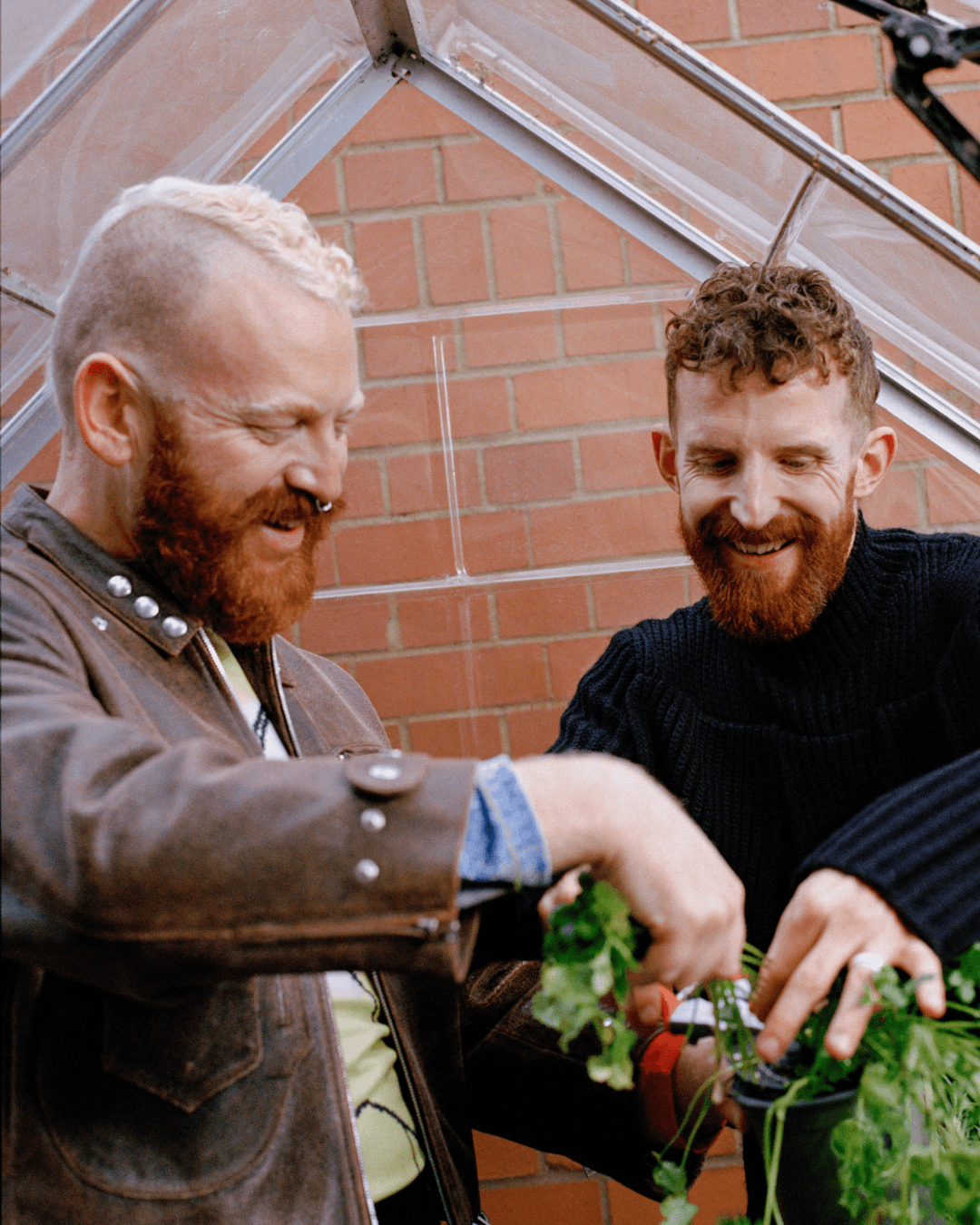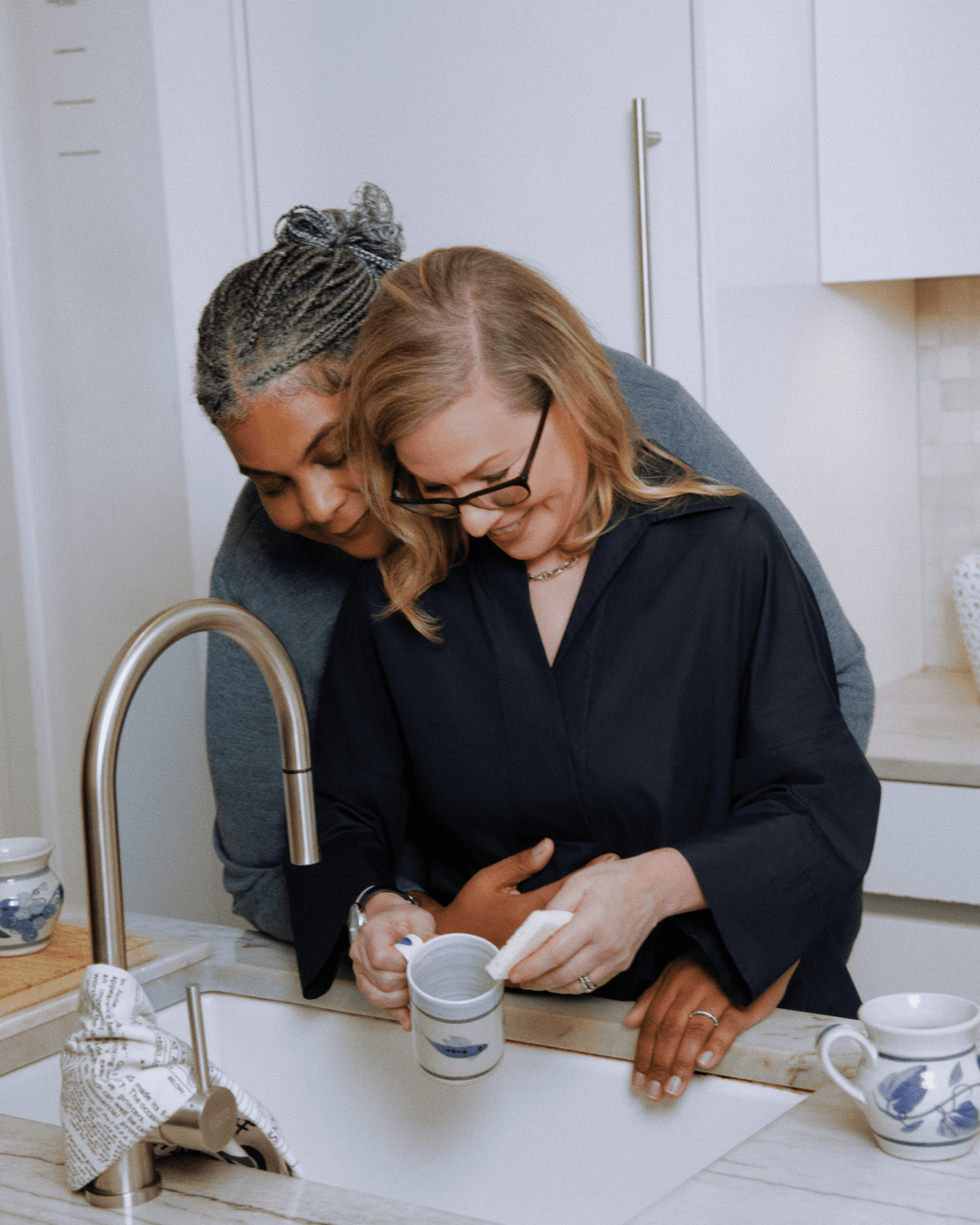The person I’m dating and I communicate very differently – any tips for good communication?
Ash: We are all born of our own experiences and everyone has different ways of how they communicate their needs and emotions. I think a simple tip is identifying how your partner likes to be communicated with. Even if it’s not your natural instinct to communicate that way, identifying their communication style means you can use that as a tool, inch towards that way of communicating, or find some kind of meeting point.
I think you can try to intentionally establish a shared language over time, because that doesn't necessarily happen naturally.
For example, I’ve learned that Angel doesn't like when I say things a certain way that's so normal for me, but it comes off as rude or crass to them. So, it’s like, “oh, can I soften the way I say this or have more sensitivity so that my partner feels more comfortable?” I think the other thing would be having patience – it's not going to change overnight because we're so socialized into our patterns.
Angel: I think identifying your styles is key. That can mean asking them straight up, and it can also mean being down for feedback, which can be a bit of an ego test. If I were to do things all over again in this relationship and others, it would be to look at one another’s love languages and apply that to how you communicate. My love languages are acts of service and gift-giving. So I like my partner to help out. I think you can tap into these aspects of who a person is, it provides a way to get to know them better and also a basis for good communication to feel possible.
Oftentimes, communication differences result in just clashing, clashing, clashing, and then an explosion. So we can be preemptive or proactively express the desire to communicate better.
Whether that’s straight-up asking or creating an arena where it feels safe to talk about communication outside of conflict. Maybe somewhere chill, away from where that conflict happened, somewhere neutral, like a park.
Ash: Waiting for or finding a different physical space or a different emotional space to talk about communication outside of a moment of conflict can definitely help take the conversation away from a heightened or activated state. When you're having conflict with someone, it is probably not the time to talk about communication styles!
Angel: Being down to shelf that conversation and come back to it later usually means the conversation works out better in the end.
Shugs: I access emotions from a different place to Tom, in almost the opposite way. I take my time, think a lot, and then arrive at an answer. Tom either arrives at an answer much quicker than I do or works stuff out in situ. That has been a really wonderful mix but has also caused certain issues or complications in how we each deal with situations or conflict.
A case in point is when we were friends, falling in love, but we didn’t really know that we were. We were young. Tom would say "Let's give this a go." And I would be like: "I’m not in love with you, we're just friends!" But then I did things my way. I remember being on a tour of a Shakespeare play around America with loads of students. I got the entire cast to do a flash mob for Tom as a surprise for their birthday. It was a fully rehearsed performance piece and yet I was like, “we're just friends!” For some reason, a flash mob was easier than saying “I love you”. I suppose because my communication style is more gestural?
Something I’ve learned as a person who takes more time to work out how they feel before they can communicate is that it’s helpful for me to work through certain issues by talking to someone else before I can with my partner.
I’ll often talk to my sister before going to Tom, for example, because I find it reassuring to get another perspective. Sometimes I write things down on my phone – because I get lost in thoughts and feelings, or forget things. So I think it’s useful to acknowledge how you process stuff. Maybe that's journaling away from your partner or going on a walk alone and really thinking. Respect how you process emotions and don't just let one person's way of communicating dominate. It’s taken us a long time to realize it, but acknowledging and respecting how you come to conclusions and communicate will be better for both of you.
Tom: Exactly. It’s ok to communicate differently. At times, Shugs needs me to just stop talking, and he needs to be given space to come to a conclusion. But the crucial thing – in those early stages and in late stages and in the 10-year stage of a relationship – is to work out how you deal with that, understand the other’s communication style, and ask them to respect yours too.
Roxane: Good communication is one of the foundations of a good relationship, in my opinion. Good communication can also look a lot of different ways. Debbie and I have very different communication styles. Debbie is all communication all the time. I love it. I never have to guess. If I ask her a question, I get an answer. Whereas I very much keep it all to myself. I'm never going to be the way Debbie is. We may never be fully aligned, and that's not necessarily the goal. The goal is to figure out how you can create a mutually workable way of communicating.
What has worked for us is that Debbie has been very clear about her communication needs, and I have done my very best, to varying degrees of success, to rise to the occasion. Although sometimes I have to be honest and say, “I just don't have any other thoughts on this or anything to say about that”,
So in general, I would say, do your very best to ask for what you need, because you can't get it if your partner doesn't know that you need it, and vice versa.
You don't have to become someone you're not. I'm still very quiet. I still am a bit, keep it to myself. But I do sometimes try, like when I know that I'm feeling sad or feeling irritated or whatever, to tell myself, Roxane, it would actually probably feel better to bring this up with Debbie and get her thoughts, or at the very least get comfort. And I find that that helps. I push myself out of my comfort zone, but it feels good because I know that I'm sharing my thoughts and feelings with someone who actually cares about them and therefore won't be careless.
Debbie: I would add: don't take somebody else's communication style personally, because it's generally something that is not a reaction to you, but just the way they react. It is also something that can evolve over time as you evolve as a couple.
Early on in our relationship, I remember talking to my therapist about how Roxane can be very shy about communicating her feelings, and I was like, “But she communicates them so well in her writing!”
My therapist said: "That's why she's a writer".
Suddenly it made sense, people have their own way of being able to communicate.
I thought it was something about me that was keeping her from communicating more freely, but it wasn’t. The more we share those kinds of awarenesses and learnings with each other, the better.
Explore all questions, or read more about navigating the holidays
NFAQ is an educational guide for Not-So-Frequently-Asked questions, submit a question to expand this discussion.
HaveMoreQuestions?
NFAQ is an educational guide for Not-So-Frequently-Asked questions, submit a question to expand this discussion.











